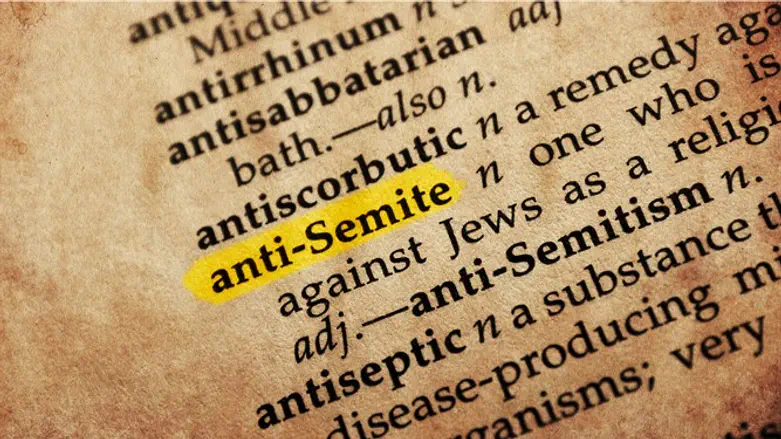
Written jointly by Dr. Efrat Sopher, Jasa Kraus and Andras Buchler
When we travelled halfway across the world to Moscow this fall for a seminal international conference on battling anti-Semitism, we could never have imagined that we would find ourselves standing there in silence to mourn 11 fellow Jews massacred in cold blood while praying at a synagogue in Pittsburgh.
As we stood together in solidarity at the Russian Jewish Congress’ second Moscow International Conference on Combating Anti-Semitism, Xenophobia and Racism - “Protecting the Future”, we knew that there could not have been a more sobering wake-up call of how pressing our mission to combat anti-Semitism and hate is.
On the sidelines of the October 28-30 conference, 47 members of the World Jewish Congress’ flagship program, the Jewish Diplomatic Corps, hailing from 26 countries on five continents, gathered for our annual regional meeting.
Indeed, it was as if fate conspired to for us meet, amid constant reminders of how critically the past can repeat itself if we do not stand up to the forces of anti-Semitism and hate in this world – and how we are all in this together.
The past and present were constantly inter-twined. Indeed, in a cabinet just outside the conference hall stood a brass plaque declaring that Chiune Sugihara, former Vice Consul of Japan in Lithuania and Righteous among the Nations, who saved the lives of thousands of Jewish refugees during World War II, worked at our hotel from 1963 to 1971 after being reprimanded by his government for not following orders. It turned out that this was the man who saved the life of the grandfather of one of our fellow Jewish Diplomats, Ariel Rodal-Spieler. Ariel had just delivered one of the most outstanding presentations of the conference on the grave danger of anti-Semitism in the media. Had it not been for Chiune Sugihara’s brave actions, Ariel would not have been with us! Such deeds of individual courage in standing up against hate, prejudice and anti-Semitism reminded us of our own responsibility to do our utmost in this battle.
Symbolically and practically, the conference was a great opportunity to cover the complex matter of countering anti-Semitism from various angles - most of all by developing trust-building between non-governmental organisations (NGO’s) and governments. This was especially the case as the Russian government was represented by high-ranking Foreign Ministry officials. The WJC Jewish Diplomatic Corps was also able to meet with leaders from the Moscow City Duma and young diplomats from the Russian Ministry of Foreign Affairs as well as 10 embassies to raise awareness of the threat of anti-Semitism globally. Our delegations all saw the present climate as a unique moment for a leap of faith in government in fighting anti-Semitism and hate on the ground.
We see the current state of affairs – amid unprecedented depth in trade, security and other cooperation between Russia and Israel - as an opportunity for the Russian government to further expand the already fruitful cooperation with the Jewish community. The potential positive ripple effect of this regionally and internationally could be significant.
With this in mind, we compiled a five-point wish list for practically implementing the worthy ideas that were shared in Moscow:
First, we must raise the issue of cross-border funding of extremism that includes anti-Semitic rhetoric that leads to anti-Semitic attacks. The money-trail behind extremism and anti-Semitism must be investigated just like the international funding of terrorism in order to paint a clear picture of how anti-Semitic groups become financially enabled.
Second, it should be everyone’s priority to adopt the wide spread acceptance of the standard International Holocaust Remembrance Alliance (IHRA) definition of anti-Semitism. Admiring the Jewish community and having a kind heart must be anchored in law by a quantifiable and concrete legal definition. Included in the IHRA definition is the link of anti-Zionism to anti-Semitism, a worthy clause that cannot be ignored.
Third, without a strong civil society and effective education to combat anti-Semitism and xenophobia we are lost. As reflected by WJC Commissioner for Combating Anti-Semitism, Julius Meinl, a significant effort in education to counter anti-Semitism is vital in the educational sector, in law enforcement and in the judiciary. It is education that transforms xenophobic and anti-Semitic mindsets, and it is education of law enforcers that enables laws that sanction anti-Semitism to be enforced. Countless studies demonstrate that education is key, such as the PEW Research Center’s survey published in June 2018 on anti-Semitism and Islamophobia and underlined the positive effects of education in battling anti-Semitism and Islamophobia.
Fourth, we found that a thorough dialogue with communities in the Muslim world is extremely important both for outreach to counter xenophobia and hate and for tackling an element that could have been discussed in more depth at the conference -Muslim anti-Semitism.
Finally, we strongly felt that anti-Semitism is not solely a Jewish issue. Jews are the proverbial canaries in the mine who alert society to dangerous triggers to hatred of other minorities in society. It is not solely the responsibility of Jewish communities to fight anti-Semitism. Governments must work to fight anti-Semitism, hatred and violence.
We all wished Moscow farewell, hoping that conferences on anti-Semitism would be a thing of the past, a plaque in a cabinet telling of bravery of a time gone by. We must be brave and tackle anti-Semitism head-on with clarity and precision.
The authors are members of the flagship diplomacy program of the World Jewish Congress, the WJC Jewish Diplomatic Corps, an international network of 300 Jewish professionals from 50 countries that engages in diplomacy and public policy on behalf of world Jewry.
